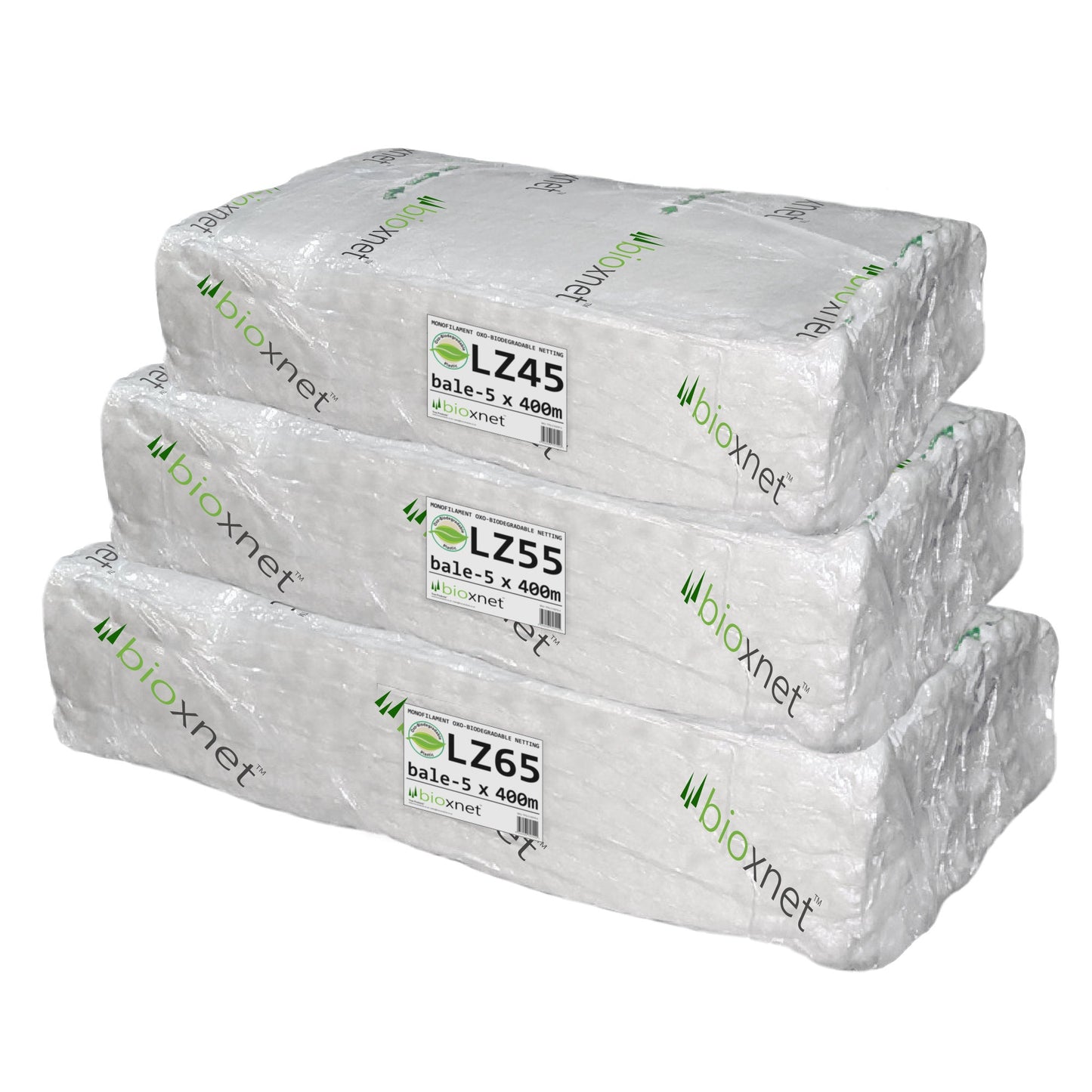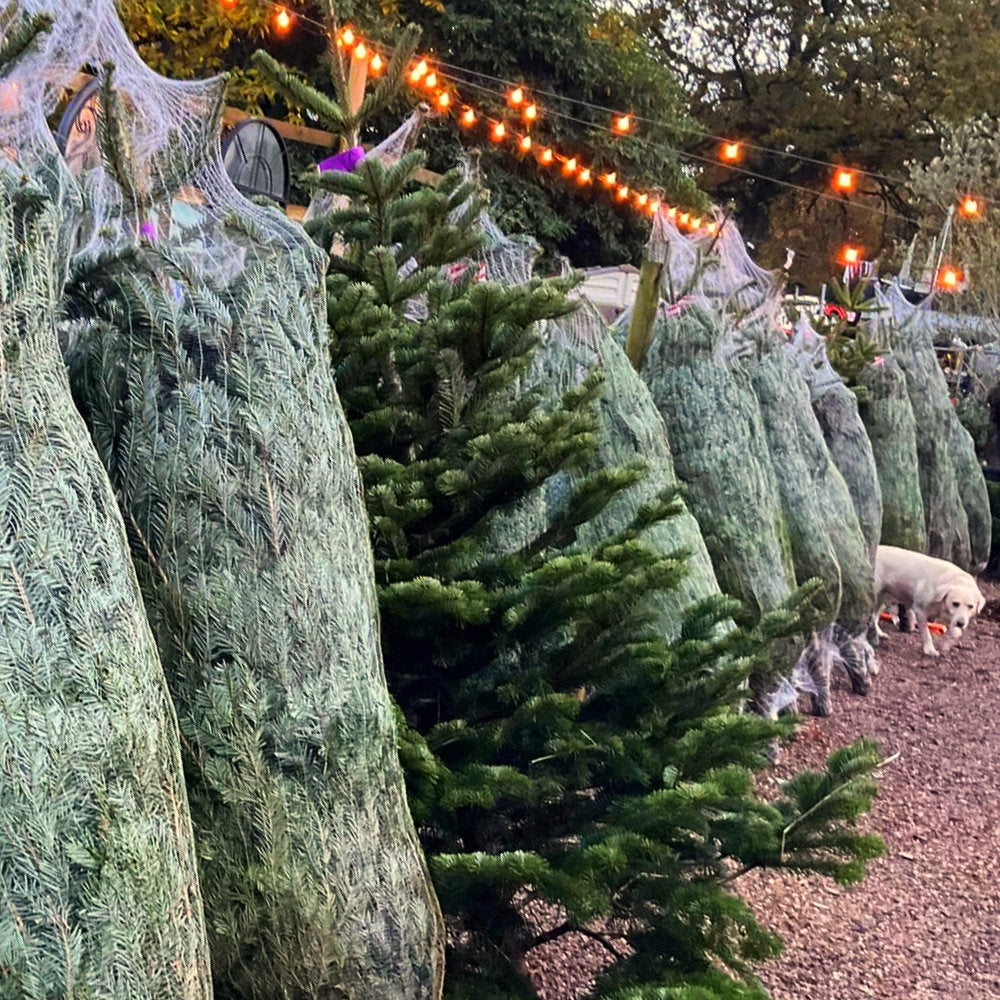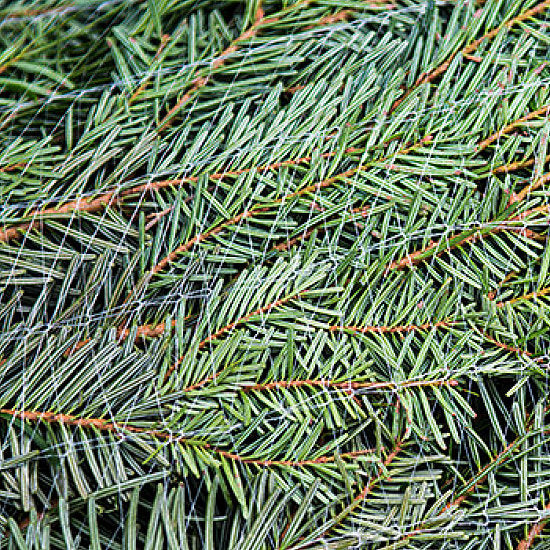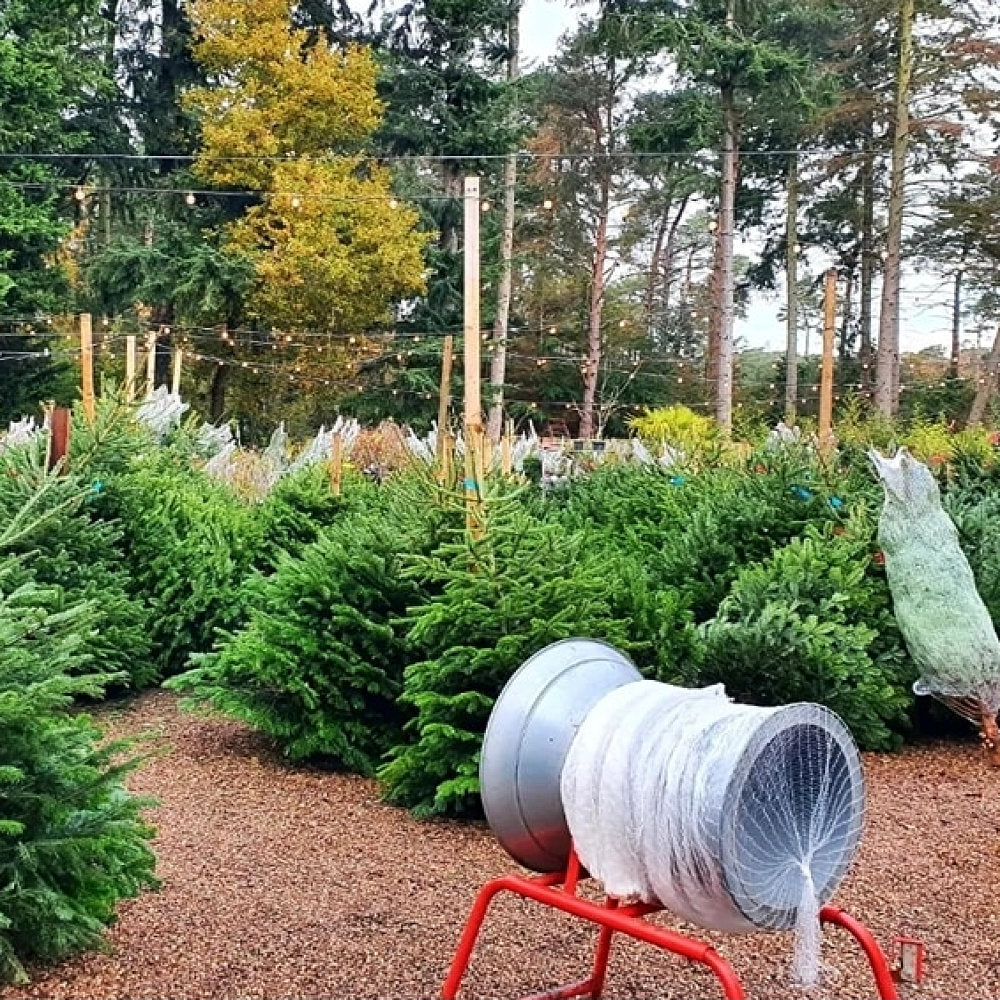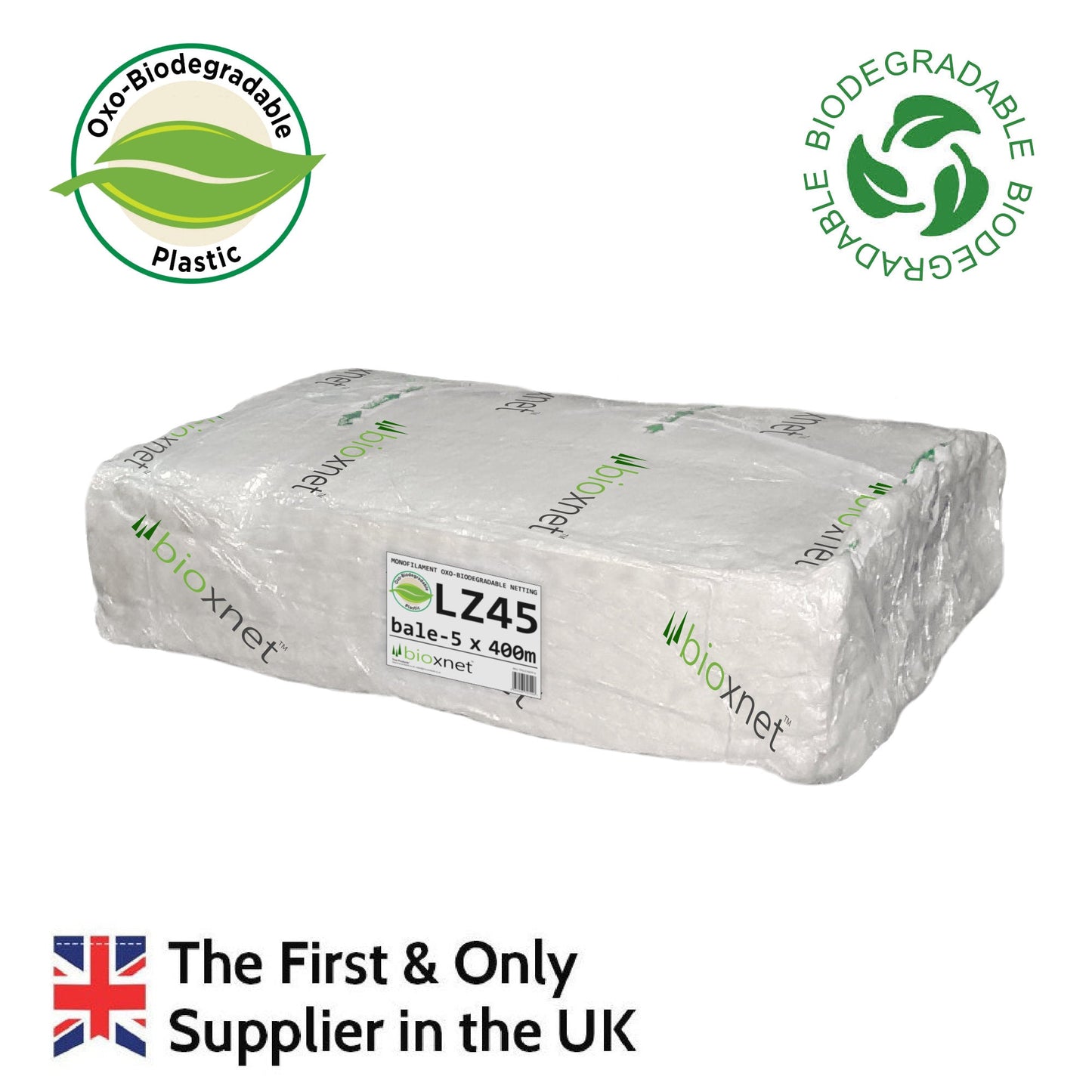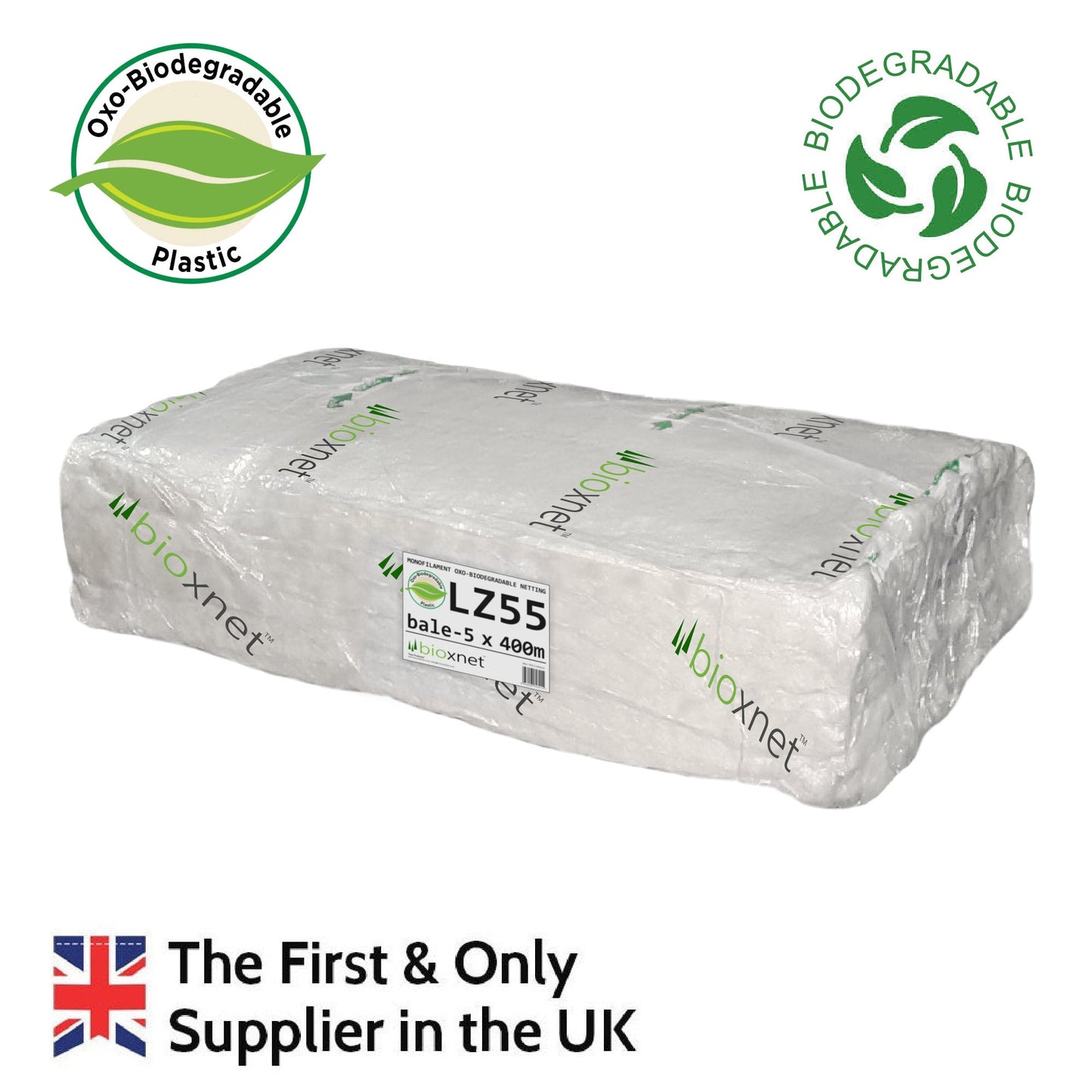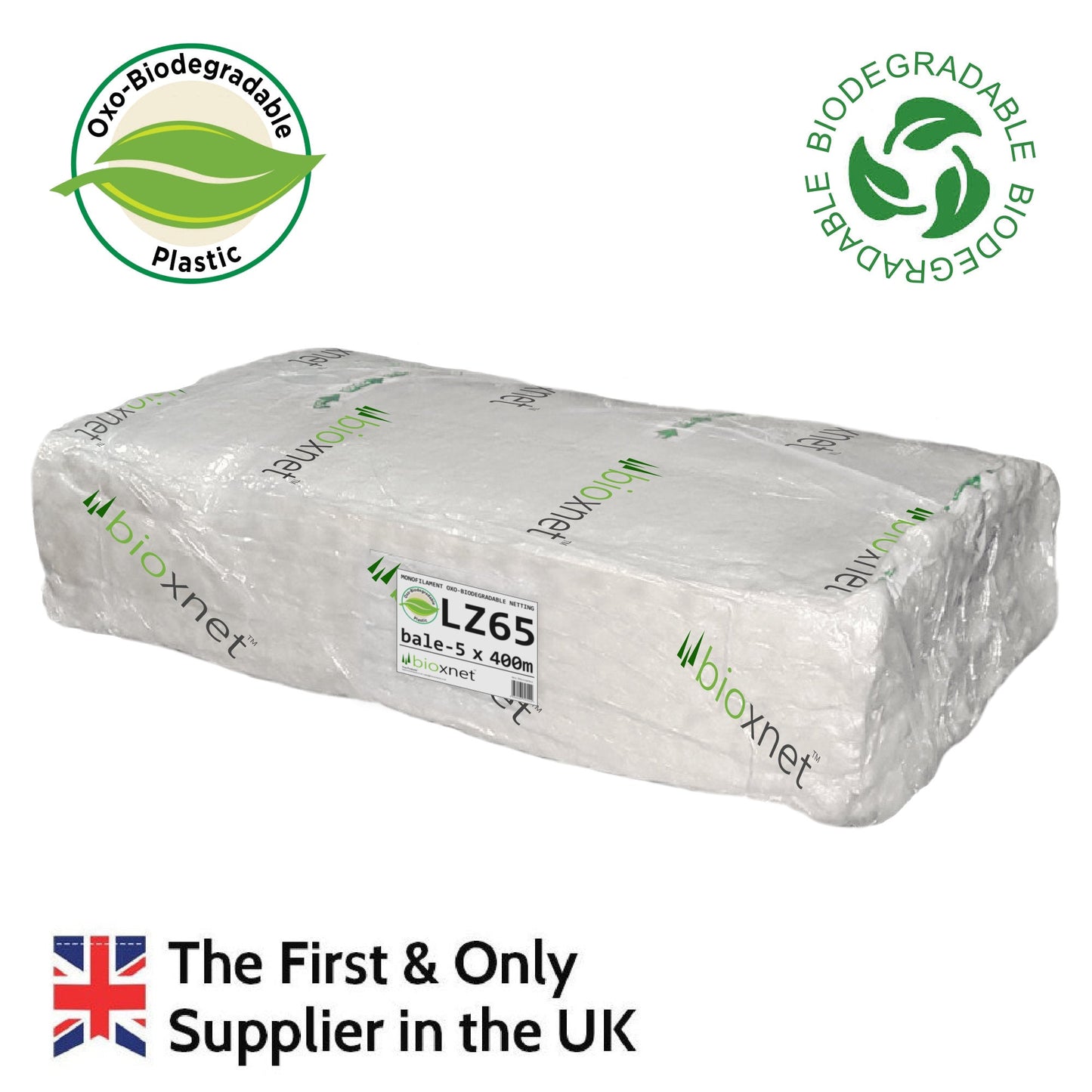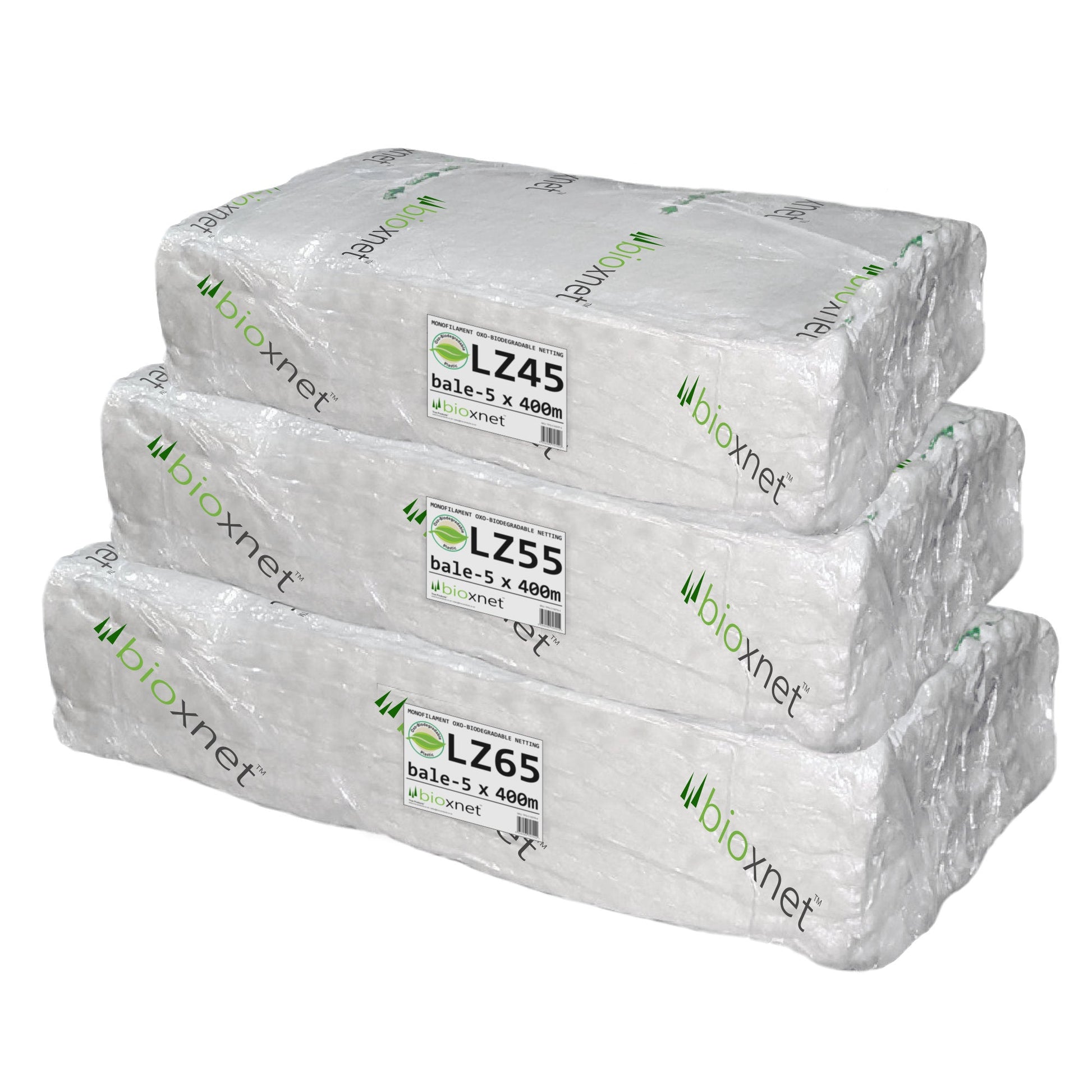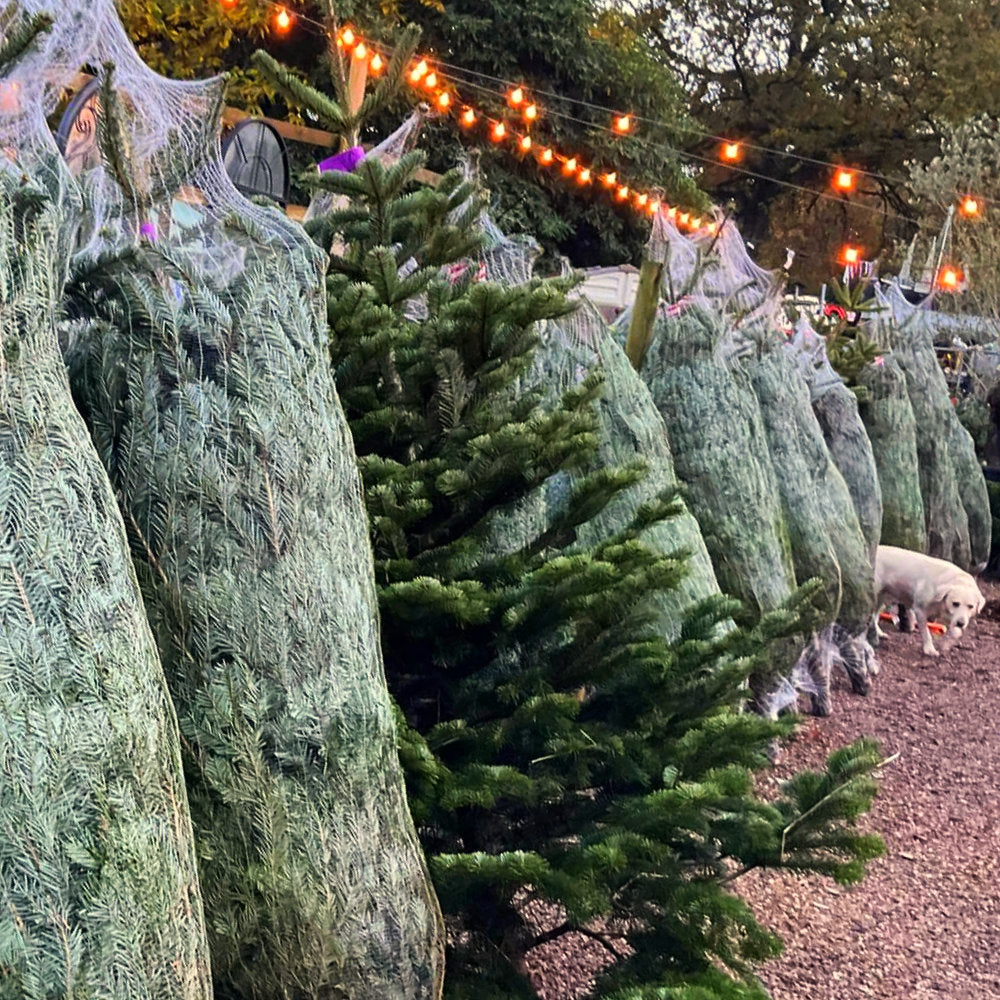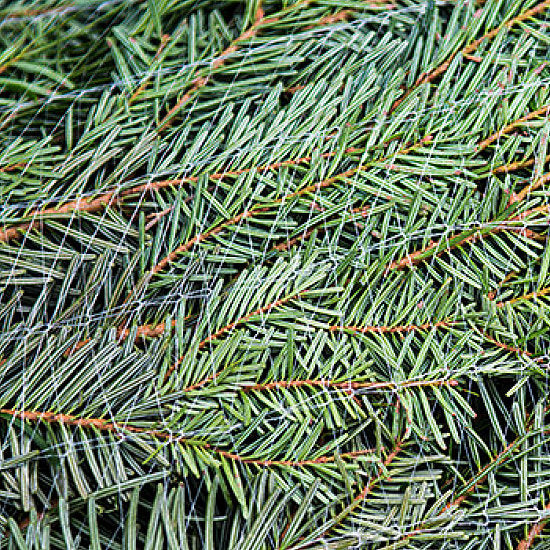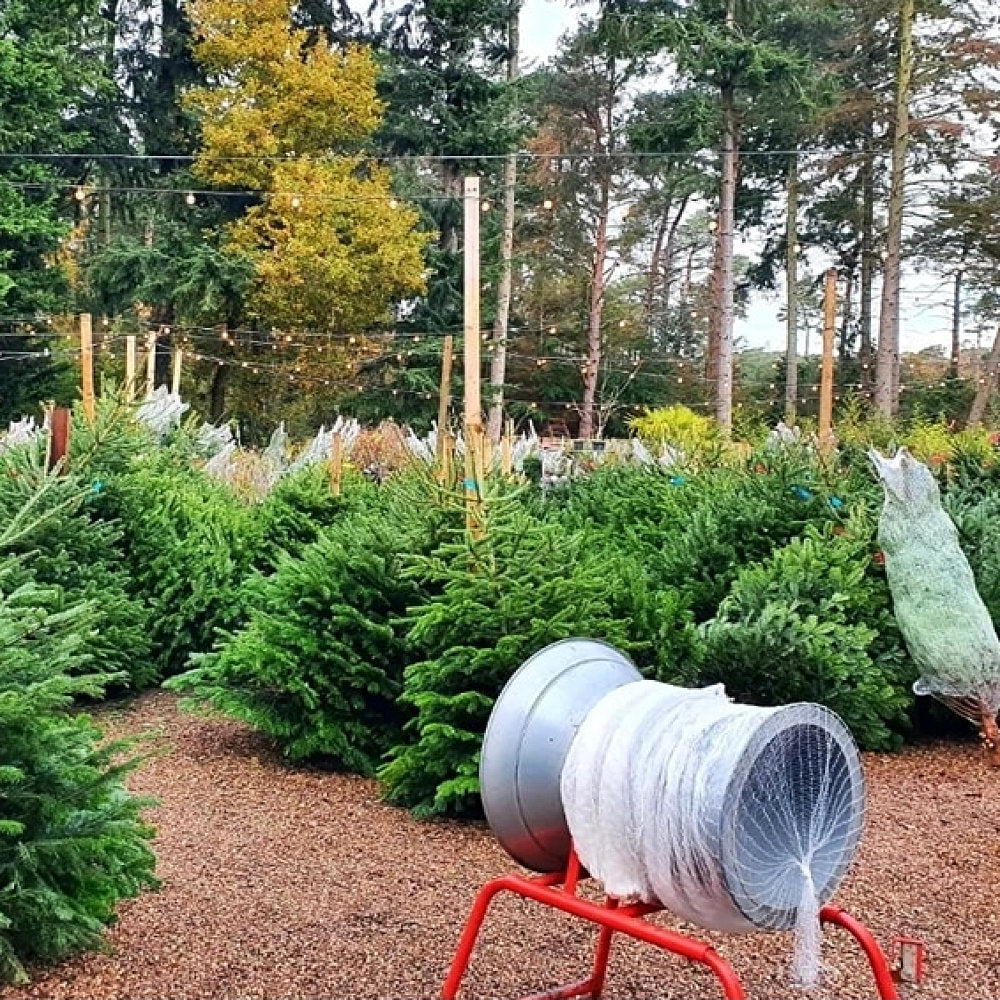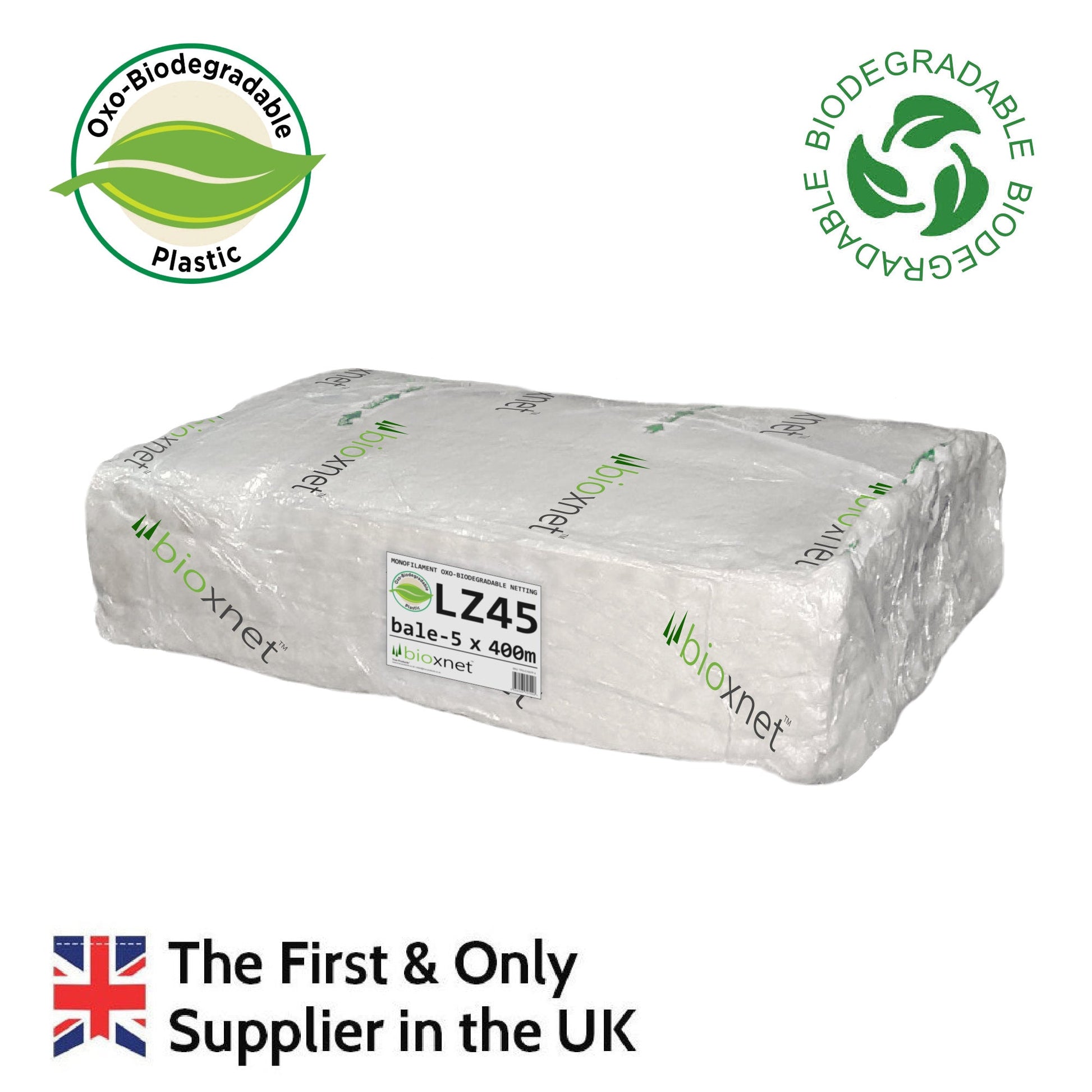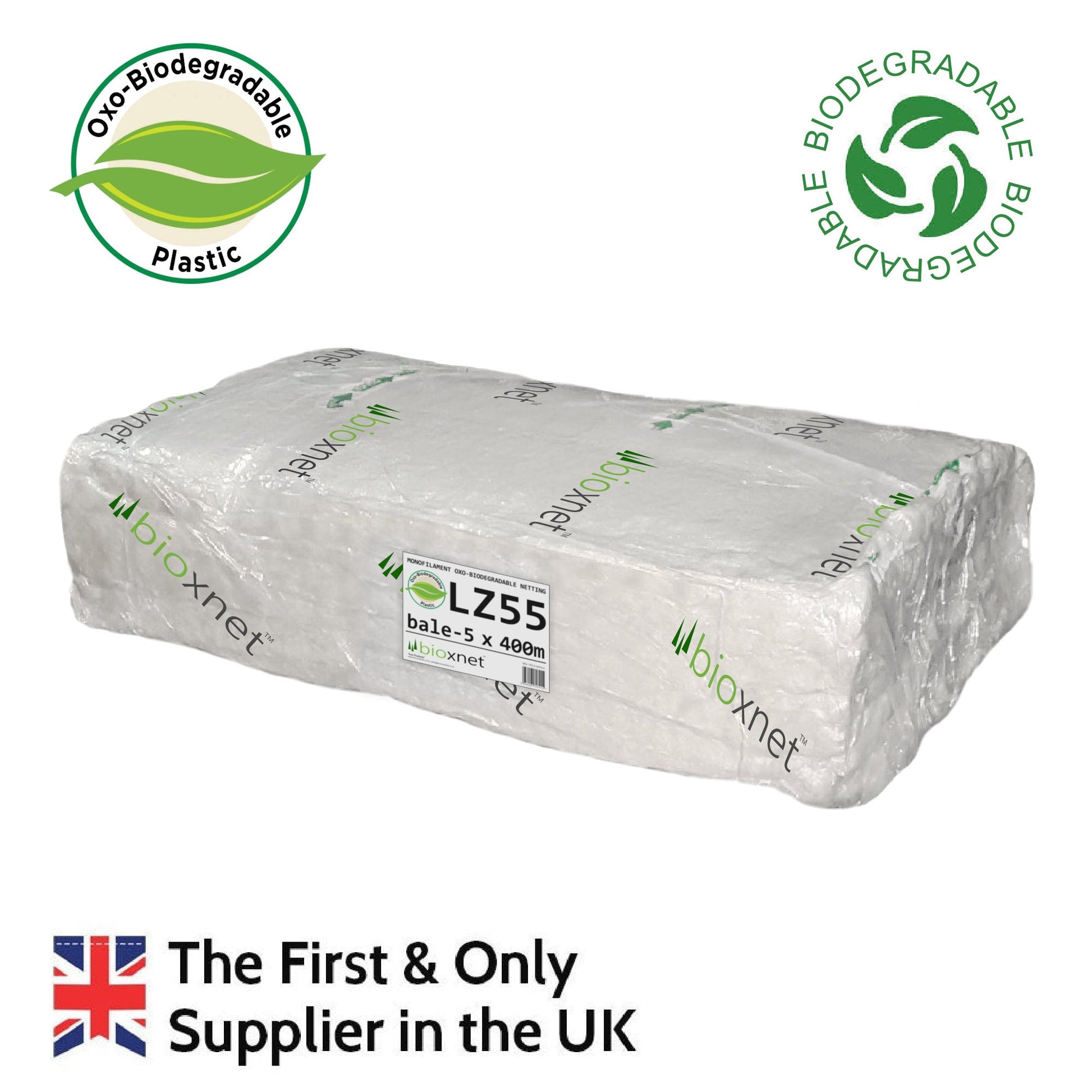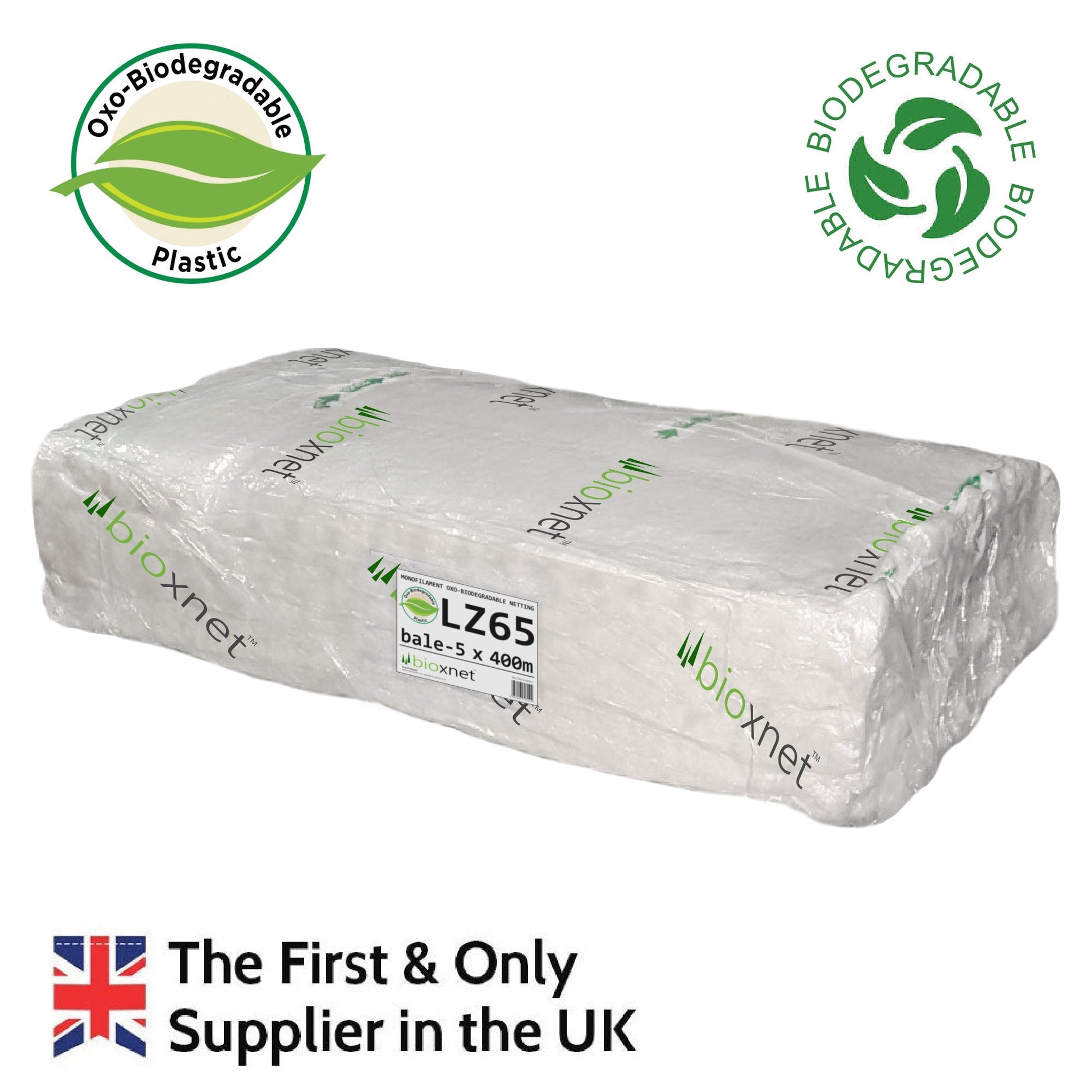Oxo-Biodegradable LZ Christmas Tree Netting Bale - 2000m
Oxo-Biodegradable LZ Christmas Tree Netting Bale - 2000m
SKU:C1007P-5-MV1
47 in stock
Couldn't load pickup availability
Enjoy flexible payment options with

![]() Delivery Information
Delivery Information
Free Delivery over £100 to UK Mainland
Standard Delivery - 2-5 working days, depending on location
Next Day Delivery - order by 1pm, Mon-Thu (excludes Sat, Sun)
Product Description
IMPORTANT! This product is oxo-BIOdegradable and not to be confused with oxo-degradable. The BIO part means that it degrades and then BIO-degrades leaving no microplastics behind..
LZ pattern monofilament Oxo-Biodegradable tree netting from the high quality BioXnet range of Christmas tree netting by True Products. For use in manual or automatic netting machines.
Used by growers and retailers to wrap trees securely for transportation without damaging tree branches.
Measure the diameter of the small end of your tree netting funnel to determine what size netting is required.
Sizes:
LZ45 Netting Bale is 5 x 400m sleeves (2000m) x 45cm diameter
LZ55 Netting Bale is 5 x 400m sleeves (2000m) x 55cm diameter
LZ65 Netting Bale is 5 x 400m sleeves (2000m) x 65cm diameter
Colour: white
As a guide only: A 2000m bale should be enough to wrap around 850 average sized trees (depending on size of tree and how you use it!)
LZ Netting is used not only for Christmas Trees but for all trees the year round.
What is oxo-biodegradable plastic?
Oxo-biodegradable plastic is ordinary plastic to which small amounts of metal salts (a prodegradant additive) has been added during the manufacturing process. The resulting plastic is then made into products like carrier bags, produce or courier bags, straws and other short-life/single-use items. The big difference between oxo-biodegradable and ordinary plastic is that if oxo-biodegradable plastic escapes collection and ends up in the open environment as litter, it will degrade and biodegrade in a similar way to nature’s waste.
How does it work?
In the presence of oxygen, the prodegradant additive breaks the molecular chains in the polymer, and at the end of its useful life the product will degrade and biodegrade, that is it will be consumed by bacteria and fungi, after the additive has reduced the molecular weight to a level which permits them access to the carbon and hydrogen.
Share
